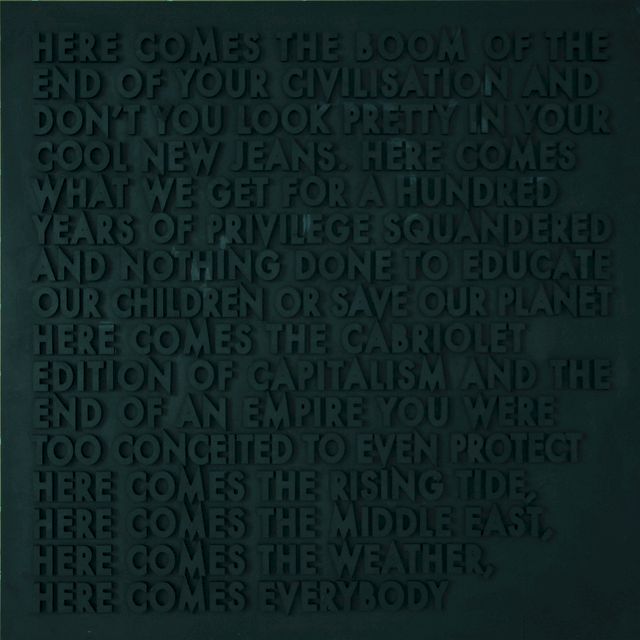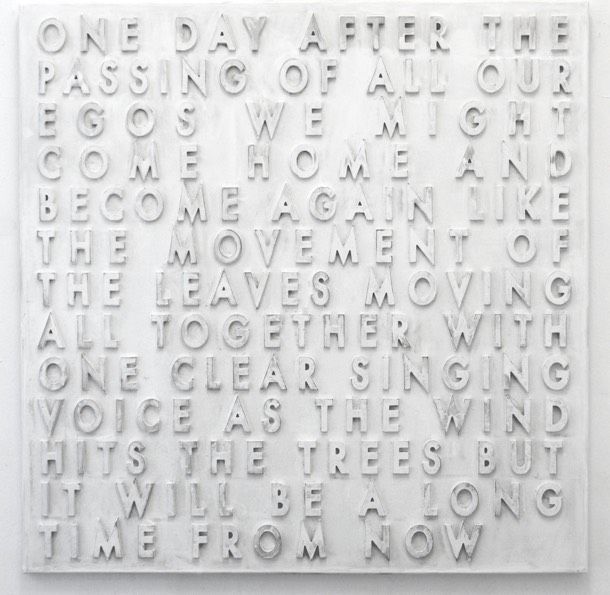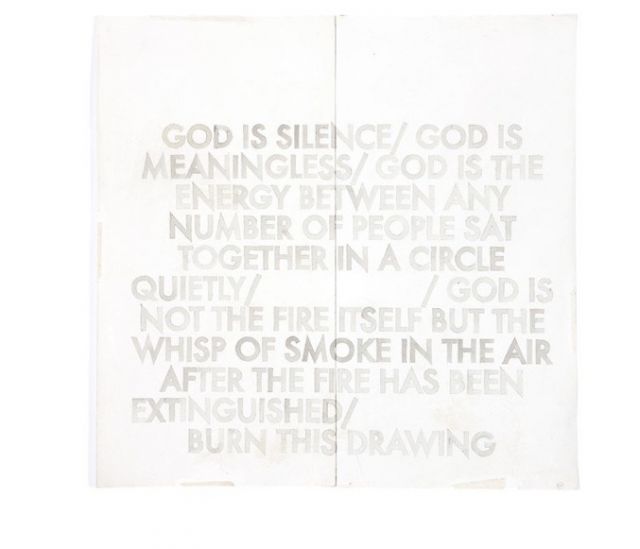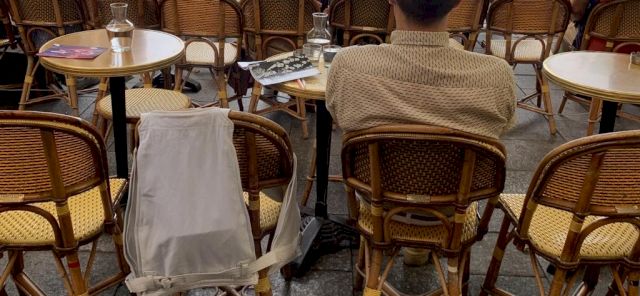Independent Collectors
The Cultivated Young Man In The Time Of A Pandemic (Part 2)
Following Part 1 of the article sharing the pandemic reflections of Tassos A. Gkekas, in this feature we complete his writings.

Following Part 1 of the article with this same title, sharing the pandemic reflections of Tassos A. Gkekas, in this feature we complete his writings. To highlight a sentence from the ending in this opening: “finally, we need to be kind to one another, and trust each other as much as we can in these times of trouble. According to ancient Greek philosophy, the Outsider, the Other, is protected by the gods – and should not be viewed as a threat…”
(advice to a citizen of the future)
II.
“Those who live by the sea can hardly form a single thought of which the sea would not be part.” ― Hermann Broch
Versus
Niccolò Machiavelli writes in The Prince that when you are very close in time to a circumstance, your contribution will be catalytic and it can be easy to fix the situation, while it remains difficult to fully comprehend the case itself. On the other hand, for the same circumstance, if the opposite happens, that is, if the problem is easily detectable by everyone, then it is too late to act, and it is most difficult to change it. Therefore, in order for your actions to be effective it requires prudence, a hawk’s eye and special attention. Thus, taking in the experience and ways of dealing with the unknown from past generations, from those who have lived in chaotic situations, plagues and wars, is valuable. Let me also refer to the soldiers from Hermann Broch’s trilogy, The Sleepwalkers, who have a good time while the bullets fly overhead, or a poet who enjoys his last glass of red wine at ‘La Pallete’ in Paris, knowing he may miss the last metro back to his apartment. Despite limitations and prohibitions, human nature – its thirst for life, adventure, and movement – can help organise itself, so that each person expresses the most human and most intimate parts of himself, while resisting misery, and without losing one’s calm, moderation, and, above all, naturalness. After all, nature has its own seasonal cycle: the days are getting longer, spring lingers, and summer is underway.
Since being human means putting an effort into weighing current options and bringing new ones in to play, there comes a time when the careful sorting of your past actions and habits is called for. Consider which new practices and principles would benefit your life, and cultivate them. On the one hand, it is time to gather and work out essential actions and activities, so that the chaff can be separated from the wheat. On the other hand, as you are constrained, there is time to conceptualise exactly how your stance reflects the socio-political life and affairs, to comprehend what the political significance of your deeds, and to understand what do your actions mean and convey to others. At the same time, since you are an active observer of the world, consider how much you know of different disciplines and manifestations of life around you. A young citizen ought to have a point of view, with cultivated, political, social and aesthetic opinions of his own, and be in command of his own voice when it comes to political affairs. It is about time you start reading a selection of newspapers – and not only of your own country. You must decide for yourself how the idealism of Positive Sciences interwinds with the realism of the Humanitarian field: – I wouldn’t know which side you are coming from, but this is your chance to learn about the Other – and do so by having faith in a new conscience and a widened sense of responsibility for isolated actions, which affect the state and its people. Now, is also the time to delve deeper, and to determine, with even more certainty, your intellectual principles, sensibilities and morals of your education, and to be consistent while you establish these very noble principles.
Everything significant that you have been practicing previously – keep on doing it, without hassle, without pause, at a steady pace and intensity. It’s important that everything formative you have achieved so far continues in the new environment. You are the most active member of this world; you are part of the solution to the problem. Don’t be disconnected from an interconnected, more malleable and ever-changing world. My warm, most visceral and impassioned request is that your sensibility and your healthy cosmopolitanism should not be lost. I want your renewed works and ideas to circulate freely, like goods and commodities, through successive channels of communication, which, with many sacrifices and patience, are being carved through time. A clear, difficult game of hide and seek, having and not having, of gaining and deprivation, begins. I don’t think there is any merit in standing too close to nationalisms’ death rattle and one-sided activities. Be careful not to let anything dying fall on you like a noxious tree. Remember that the Mediterranean became the Mediterranean due to the very shortage of goods in a city or territory, forcing trade with, and supply from, the outside. This fact alone has multiplied and nurtured inter-cultural relations, and provided countless additional reciprocal advances to its peoples. Cosmopolitanism, as well as the exchange of goods and information, is neither capricious, nor hedonistic, nor tactical, but ‘par excellence’ the exclusive way by which humans survive as social and cultural beings.
I would urge you, furthermore, to wait for the wave until it eventually comes forth. Get ready for the forward moving rush, as it is now receding. Don’t call off the trips you wanted to take. Just wait for them. Simply protect them. Organize their details more effectively. Stay determined in what you already love and wait patiently for your own gradual, magical take-off. Live wholeheartedly in the moment, accepting that it is neither completely permanent nor fleetingly temporary. Admit that the temporary, the fluid, and the volatile prevail at this moment. But from one moment to the next, the moment is gone – it’s over!

Study examples of other historical pandemics, their nature and their economy. If you do not familiarise yourself with them in some way, how will you discern their function and cycle, and how can you prepare and endure further, tougher rounds coming your way, as many as the viral infection commands? Keep your strength for the time when the world will begin to see the light of change, and in doing so, begin to let go of instability. Install a buoy. I think the new beginning will probably be marked by our return to international flights. This is the pre-eminent signal you are waiting for to start your big international journey, your ‘second voyage’, with more momentum and hope. Until then, gather knowledge, cultivate the nobleness of your abilities, cleanse and protect your immune system, because by nature it was created to protect you – without medicine, if needed.
Yet, in my opinion, now is the time to sculpt the beginning of what you want and love, and to do even better. Make it unbreakable, visible, and clear. Set it upon even more solid foundations. The importance of a good start in an endeavor is like what remains of the ancient temples on earth – the part that can’t be demolished in the end, or over time. It suffices to make a good start and set roots into fertile ground. I think that during this pause of all movement, you are given the opportunity to compose your knowledge, to seal the foundations and solidify them like the immortal rocks of the Acropolis and the Platonic ideas. Rest assured that the little importance our leaders gave to the pandemic at its outset reveals that there is hardly any beginning that receives from our contemporary cultures the attention it deserves. Keep this in mind and do what no one expects, nor easily recognizes.
Finally, we need to be kind to one another, and trust each other as much as we can in these times of trouble. According to ancient Greek philosophy, the Outsider, the Other, is protected by the gods – and should not be viewed as a threat. Hospitality, ‘Philoxenia’ was considered an important obligation in the Greek world and was directed by Zeus, to whom the ancients referred to as ‘Xenios,’ the protector of voyagers. I think that there is no greater requisite right now than the protection of our relationships, while re-adjusting the rules of hospitality and communication, with added affection and care for the customs of the Other. If you are still called a Greek, it is because you have been brought up to be a man of the world, a global citizen. Ultimately, our enemy is not man himself, nor even the virus, but the blind conformity to the priorities of Western culture which, always being in a rush, has put our immune system last.
Stay safe, with a new awareness, ‘nor lose the common touch’.


To my brother N. A. Gkekas, Tassos A. Gkekas, Pieria, Hellas 29/03/20
Trans. Savvas Tsangaroglou Edit Jonathan Rosse